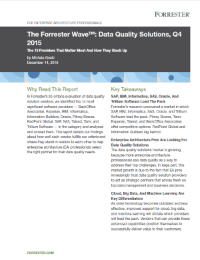- Products

Enjoy a free 30-day trial of our
data validation software.Experience the power of trusted data
solutions today, no credit card required! - Solutions

Enjoy a free 30-day trial of our
data validation software.Experience the power of trusted data
solutions today, no credit card required! - Partners

Enjoy a free 30-day trial of our
data validation software.Experience the power of trusted data
solutions today, no credit card required! - Learn more
- Pricing
- Contact Us
Manual vs. automated data validation

The debate between manual and automated data validation can go something like this:
Data stakeholder 1: “I would like to keep my data in-house and secure; I don’t know how I feel about paying a third-party to validate my database when I could do this myself.”
Data stakeholder 2: “Yes, I hear you, but how much of your team’s time and budget are you willing to dedicate to fixing something by hand when there’s technology that does it automatically?”
These types of conversations happen more and more frequently as businesses balance what they see as immediate—but short-term—fixes to data issues versus implementing a data verification solution as part of their longer-term data management strategy. There’s always the hope that ad-hoc fixes performed by someone on your team familiar with the data can get the job done right then and there, but data quality challenges are rarely one-and-done issues, as much as we wish they were.
Here are the pros and cons if you’re considering manual versus automated data validation:
Pros of manual data validation:
- Works for small datasets
- Deeper level of in-house control over rules and SLAs
- No costs associated with learning a new technology
Cons of manual data validation:
- Time-consuming
- Still introduces the possibility of human error
- Having to fix data issues after they appear in the database
- Addressing data issues after end-users or customers have been negatively impacted
Pros of automated data validation:
- Capacity to verify huge datasets
- Less allocation of internal human resources to the maintenance and upkeep of data
- Extremely efficient in terms of setting up logical rules to run automatically
- Ability to cleanse data in real time or customized scheduled cleanses
- Can be performed on the front- and back-end of your data collection channels
Cons of automated data validation:
- Integrating new technology into your current environment
- Working with third-party vendors unfamiliar to your business
- Time-to-value of new technology
For many of today’s businesses, the volume of data collected—including mailing addresses, emails, and phone numbers—simply isn’t suited for manual data validation anymore. There’s just too much of it!
The age is past for debating about whether or not to automate data validation processes. Businesses today must focus much more on strategic implementation based off accurate data rather than worrying about if their data is good enough to work with in the first place. When data permeates as much of the decision-making process as it does, it would be as foolish as debating who the real headliner was for the half-time performance at Super Bowl 50 this past Sunday. (Beyoncé.)
Learn more about how Experian Data Quality can help implement an automated data verification strategy into your business.

